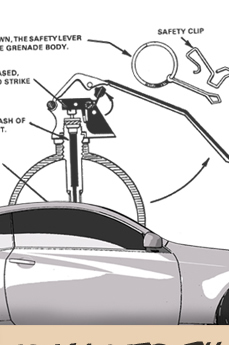| |
|
Congratulations, you are the proud owner of a fairly complex Delphi engine control unit which your Hyundai shares with some General Motors, Ford & Dodge products, among others. What does this mean to you? While this ECU isn't exactly rocket science, nobody's really interested in hacking & open-sourcing it for you to tune because if you could fully rewrite it, you'd gain fuck-all in horsepower, and frankly nobody is too sexually attracted to hacking Hyundais.
FAQ: "When do I need a tune?"
Answer: If you've built a stroker motor with altered displacement/bore/stroke and/or you've nutted up and strapped a turbo/supercharger to your car
The Good News: Aftermarket flashes for your V6 net very little in terms of power but will typically linear-ize your fly by wire throttle and make it respond like it should.
The Bad News: No open source available for the ECU - closed-source Korean providers vary day-to-day on whether or not they think they can real-time-tune your ECU for things like forced induction; even if you do manage to fully and precisely tune an NA V6 motor your gains will not be particularly correspondent to the amount of money and time you will have spent.
Piggybacks
Before we get into the meat and potatoes of ECU flash tuning, lets address piggybacks. If you don't know that that is, it's a rudimentary little computer that plugs into many of the engine sensors of your car, intercepting data the sensors send before the data gets to the ECU. Before the data is relayed to the ECU, the piggyback alters the voltage of the signal based on what you tell the software to do, e.g. it is 'faking' sensor data so the ECU does what you want it to do, add/subtract fuel or spark, boost (in F/I motors), etc. The Pros here are that it's cheap, any tuner can operate one, and it gets results quickly and cheaply overall. The Cons are that the piggyback essentially cuts out most, if not all of the stock safety features the ECU has. This means if you really get aggressive with your piggyback, you run the risk of busting past temperature/rpm/pressure-based safeties without knowing, and doing real damage to something expensive, or worse, rapidly disassembling your engine.
Available Products -
AEM FI/C - [Universal Application] MSRP: $VARIES
The AEM FI/C is a universial piggyback tuning computer which you will be hand-hacking wire-by-wire into your ECU, typically only if you are trying to turbo/supercharge your V6 motor. The FI/C exists for motors where there's just about no other solution, and a standalone engine computer is not in your price range, or you are unwilling to take the dive of a standalone and chance losing your BCM functions (a/c, power door locks, radio, etc). While any tune is only as good as the tuner writing it, tuning with an FI/C is alot like trying to hit a fly with a bazooka; it can work, it's just a blunt-force-trauma solution that is generally speaking - imprecise. But it can work.
Verdict: If you've just got to have forced induction and you don't have the cash or time for a standalone
Flash Tuning
This means you are re-writing the data loaded to, or "flashed" to the solid-state (flash) memory aboard your ECU. This is a convoluted and dangerous segment of products for your car, as such, here's a brief and completely unauthorized history of flash tuning the Genesis Coupe, because I feel it's worth knowing the sheer amount of shadiness you can run into tuning this car. If you really could care less, skip down to "available products" and be on your way.
Koreans & Computers: A Colossal Greek Tragedy, Part 1
In 2009, the Genesis Coupe came to the shores of the United States, and with it - a gaggle of visitors fresh off the boat from Seoul. You see, in Korea, at least in 2009-2010, flash-tuning ECUs of street-driven cars was/is essentially a crime. Therefore the people involved in it from Korea are very likely to be less-than savory individuals. In Korea, at some point, a piece of software was stolen from Hyundai. Hyundai is such a vast corporation it might as well own the South Korean government, so at this point numerous suspect coroprations are effectively gutted while investigations are carried out, people sit in jail and wait for court dates, the works. Meanwhile, a handful of the aofrementioned FOBs who magically show up in the states begin advertising flash tuning products for the hot new tuner car - the Genesis Coupe. The turbo model is a major draw for tuners because of the low price and platform design.
The first of these is a company called PowerAXEL, helmed by none other than the same man who ripped Tiburon drivers off for tens of thousands of dollars, not to mention fleeing the country shortly thereafter and successfully avoiding their vicious retribution to this day. Second was SeoulFul Racing, widely known in the Tiburon community for brick-shithouse builds like their daily driven 400whp I4 Tiburon shop car. Eventually others sprang up, BTRCC, Next Generation Motorsports (NGM) got ahold of the same stolen/hacked software package everyone else was peddling, so on and so forth.
The software that was stolen/hacked/cracked by these Korean middlemen and then peddled here - was not a proper open-source program that you could set in front of a tuner and say "tune my Genesis!". No, this software is, at least in most cases (PowerAXEL's being the most known case) not documented in any way shape or form, and features no datalogging whatsoever. Thus, visiting Korean tuners are known to literally sit there in your car and just do dyno pulls and pretty much piss in the wind, see what happens, flip this around here, that there, etc, and imprecisely shoot in the dark. When these guys would sell a "dealership" setup of their software along with the hardware rig - they would insist any tuner could use it, it was self-explanatory, had a manual, etc. - but in more than two documented cases, professional and experienced tuners found that the software did not in fact behave the way the Koreans claimed it did, found mathematical errors in the software, in one case even spent over seven months just attempting to document how/why the software behaved the way it did because it made no sense and not even the Koreans who sold it could tell him.
If you purchase a flash-tune from literally any supplier at the date of this writing, it is an imprecise and non-user-tunable flash tune that was written on hacked/stolen/half-baked software by someone who may or may not have known what they were doing. If you pay one of these companies to real-time tune your car, they are doing it without proper datalogging to precisely tune the car, and you are getting a very coarse tune, and in some cases a dangerous one.
The only use of this Korean software on your car I would ever recommend in good conscience is a canned tune that is purcahsed WITH a known/tested turbocharger upgrade kit, such as BTRCC's 2.0T 16G kit, or TurboKits.com's V6 Turbo Kit (tuned by BTRCC) which includes a complete new ECU with it that is already flashed. Granted this tune is not a PRECISION tune for YOUR car thats been absolutely dialed, but it is known safe and the power output is known within a given tolerance range, e.g. this is a safe bet.
Available Products -
PowerAXEL Flash Tunes - MSRP $[VARIES]
Since PowerAXEL's fearless leader was recently caught stealing/cheating by his primary supplier, CM Network of Korea, he's had to switch to an alternate supplier of hardware. This brand is now trafficking hardware under the name Sterlin F1, which you might have seen stamped on an excessively expensive exhaust for the car a while back. Don't bother trying to ask them for a VEOCOM so you can learn to tune ECUs yourself, you're better off poking yourself in the eye with a sharp stick - it only works on a 2.0T ECU anyway. Canned V6 tunes from PowerAXEL are reasonably good but like all flash tunes for the V6 they dont net much if any power, just throttle response. The 1st generation PowerX modules they sold were decent enough flash tuners that stored three tunes, quality was lacking in the hardware, but the PowerX V2s were apparently assembled by drunken hamsters. Canned tunes have existed from various people who have come and gone through PowerAXEL's doors, but due to the astronomical shadiness level, it's impossible to tell what you'll get today.
Verdict: Don't touch these guys with a thirty-nine and a half foot pole, not if your life depends on it.
SeoulFul Racing SFR Canned Tunes & Real Time Tunes (live events) - MSRP $400 / Live Tunes Vary
Operated by the infamous Jay@SFR, also notorious within the Tiburon community prior to his time with the Genesis - SFR requires you send your ECU to them (turnaround time 1-4 days) and allow them to flash it with a canned tune, if you are operating on a stock turbo setup. This again is a good-enough setup where they ballpark your tune based on their experience and the mods you list for them, and you get a decent enough setup. Real-time tunes of your custom turbo setup are dependent on you affording to fly SFR's tuner to you, or bring your car to them, which means Pennsylvania. Quality of their tunes ranges far and wide depending on who you ask. SFR is notorious for building cool whiz-bang cars but never actually selling what they built. They also have a long reputation for talking a big game (read: lying) to get the sale on "exclusive" stuff you can get anywhere else. In the end though, fact is, there are plenty of people rolling around with SFR canned tunes on their stock turbos who are happy with it.
Verdict: If you can afford it, and you like it, go buy it, it's the American way!
BTRCC Canned Tunes /Turbo Kits w/ tunes, live events - MSRP $700-800 / Live Tunes Vary
Operated by the generally well-liked Sam Lee, BTRCC has a clean reputation. While they are more expensive, their product involves shipping you a NEW stock ECU, which means no downtime, and you retain your stock paperweight. Their site also has the only user-friendly customization system for selecting how your canned tune is setup, meaning you get the most accurately ballparked general canned tune possible.
Verdict: We're still not able to tune this car ourselves BUT this is about as good as it gets.
Standalone ECU Replacement
A standalone means you are removing your ECU and throwing it in the Goodwill bin. You'd be investing in a standalone for a stroker motor build, a super or turbo charger build, or a liquid-fuel rocket build, for long range space travel. Standalones come in two flavors - plug and play, and manual installation. No plug and play standalone currently exists for the Lambda motor. Hardwiring a standalone typically means you are gutting the car of accessories - things most of us require out of a daily driven car - such as keyless entry, a radio, air conditioning, things that are controlled by the Body Control Module (BCM). Now, a pug-n-play, that means you retain a whole car - and gain the ability to fine-tune absolutely every aspect of the motor.
Available Products -
AEM / GReddy / Haltech / Motec /Etc. Standalone (Universal application products) MSRP $1200-As much as you can afford
Standalone ECUs cost alot of money. They are for serious builds only, when you have decided to do things with your motor it was never intended to do, such as forced induction, or a stroker build, in which case the motor no longer spins the way it used to; its displacement and stroke are changed, and as such so is it's redline, and entire fuel curve, etc.
Using a standalone is
expensive, time consuming, highly complex, and requires a professional tuner, and preferably a shop that builds race cars to hand-hack one of these into your car.
Verdict: Not for the faint of heart or simple builds.
|
|
|
 |

































